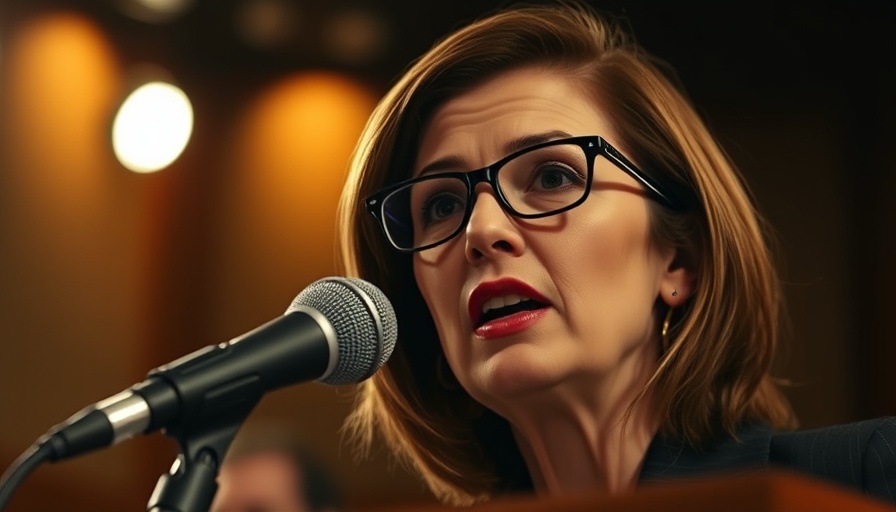
Whistleblower’s Plight: A Striking Allegation of DOJ Misconduct
In a shocking revelation before Congress, a former U.S. Department of Justice (DOJ) employee exposed alarming practices within the agency. Liz Oyer, who held the position of pardon attorney, testified that armed U.S. Marshals were dispatched to her home, ostensibly to deliver a warning regarding the repercussions of her intended testimony. This incident has sent ripples through legal and civil rights communities, prompting urgent discussions about the implications of governmental power and whistleblower protection.
Setting the Stage for Whistleblower Retaliation
The circumstances surrounding Oyer's dismissal present a troubling narrative. Reports indicate she was fired shortly after refusing to advocate for the restoration of actor Mel Gibson's gun rights—a move some interpret as deeply entwined with political considerations. When Oyer presented her decision, she was quickly escorted from her office, leading many to question the integrity of the DOJ’s leadership under Attorney General Pam Bondi.
The Impact of Fear on Transparency
Oyer's experience sheds light on the pervasive culture of fear that many whistleblowers face. The DOJ is designed to uphold justice and civil rights, yet Oyer’s account suggests a prioritization of political loyalty over ethical governance. Her testimony underscores the critical need for a secure environment—one where public servants can voice concerns without fear of harassment or intimidation.
Legal Perspectives: The Significance of Oyer’s Testimony
From a legal standpoint, Oyer's case raises essential questions about the boundaries of power exercised by government agencies. Attorney Michael Bromwich, representing Oyer, characterized the DOJ's actions as unprecedented and entirely inappropriate. His comments reflect growing anxiety within the legal community about the erosion of protections for whistleblowers. Without assurance of safety for those who call out misconduct, the integrity of American institutions may be jeopardized, hindering their ability to function effectively.
Why This Matters: The Broader Implications for Civil Rights
Oyer’s testimony resonates beyond her personal experience; it highlights systemic issues within the DOJ that could potentially threaten civil rights across the nation. As Oyer passionately contended, the agency must remain a bastion of justice and propriety—values that seem to be fraying under the weight of political machinations. For civil rights and immigration attorneys, this incident could mark a critical juncture in advocating for more robust protections for those who dare to speak out against wrongdoing.
Taking Action: The Role of Legal Professionals in Safeguarding Rights
Legal professionals, particularly those specializing in civil rights and immigration law, have an essential role in advocating for reforms that bolster safeguards around whistleblowing. Encouraging clients to report misconduct without fear of repercussions can create a transparent environment conducive to justice. This situation serves as a clarion call for attorneys to unite in demanding greater accountability from the DOJ and enhancing measures that protect whistleblowers.
Ultimately, the incident involving Liz Oyer is not simply an isolated case of workplace harassment; it serves as a red flag regarding the state of justice in America. It urges all concerned citizens—especially those in legal professions—to be vigilant and proactive in safeguarding the values we hold dear. Work towards reforms that reinforce a culture of accountability and security in the pursuit of justice.
 Add Row
Add Row  Add
Add 

 Add Row
Add Row  Add Element
Add Element 




Write A Comment